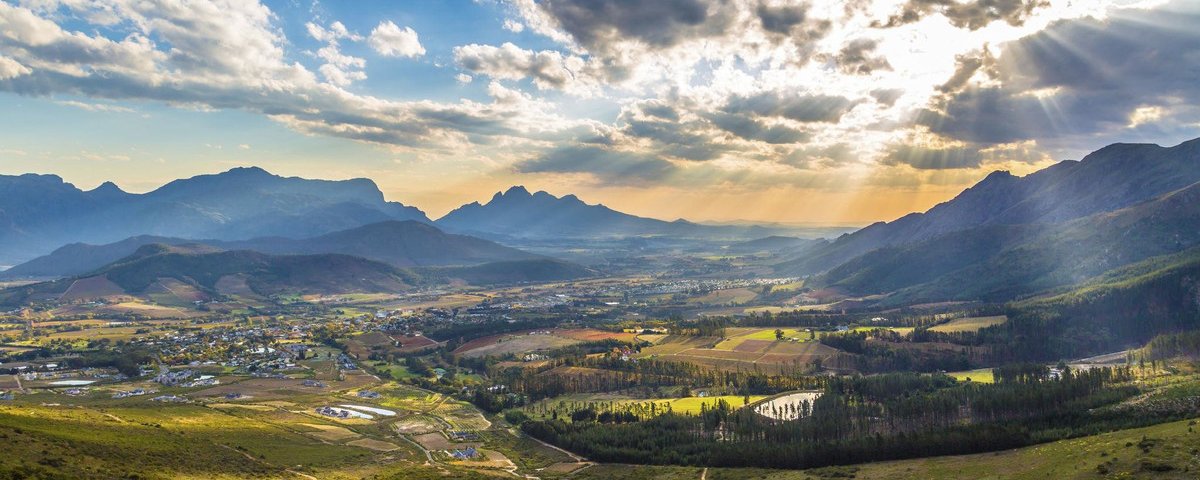Franschhoek Travel Guide
After the Edict of Nantes revocation in France in 1685, when Protestantism was outlawed, hundreds of so-called Huguenots fled their homeland, 277 of them arriving by ship at the Cape of Good Hope. Many of them were given land by the Dutch government in a valley called Oliphantshoek (Elephant’s Corner) – so named because of the vast herds of elephants that roamed the area. Soon after they settled here, it became known as Franschhoek (French Corner).
This heritage lives on today with the Huguenot monument standing proudly at the top of the village. The nearby museum chronicles the history of those brave pioneers, with each of the original Huguenot farms having its own fascinating story.
Franschhoek boasts some of South Africa’s ‘Top 100’ restaurants and has become known as the country’s Culinary Capital, providing visitors with a memorable dining experience. Leading chefs create everything from cutting-edge cuisine to stylish light meals, using only the freshest local produce paired with superb local wines.
Franschhoek is also a member of The Délice Network of Good Food Cities of the World. Délice is an international network of like-minded cities engaged in promoting the benefits of culinary excellence and good food. Franschhoek was granted membership to this prestigious network in October 2014 and is the only member in the Southern Hemisphere.
Franschhoek also offers visitors diverse culinary experiences through its festivals such as the Franschhoek Bastille Festival, The Franschhoek Cap Classique & Champagne Festival, as well as its routes – the Food and Wine Route, the Artisan Food Route, and Franschhoek Rond en Bond. The Franschhoek Artisan Food Route, in particular, exposes the visitor to a range of the finest olives, cheeses, salmon trout, charcuterie and artisanal breads South Africa has to offer.




Share This Page